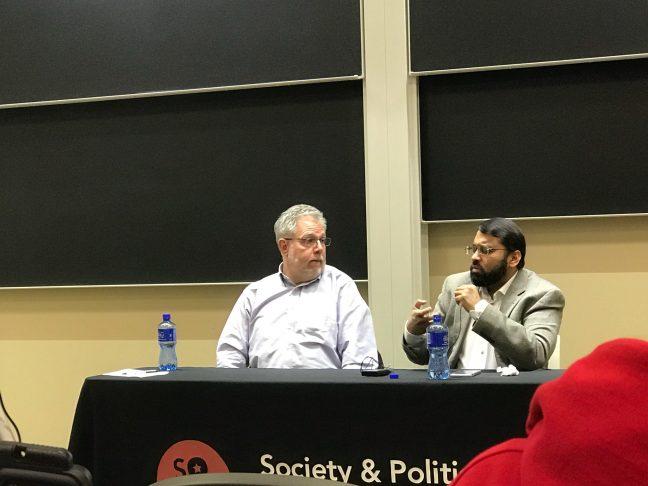The Muslim Students Association and Wisconsin Union Directorate hosted a discussion panel on the origins of morality Thursday.
Yasir Qadhi, an American Muslim scholar, summarized past debates on morality before asking where ethics and the notions surrounding them stems from, and what Muslims should do if Islamic morality clashes with other desires, customs or culture.
Qadhi believes humans contain a “spiritual DNA” and that it contributes to universal morality shared by many societies.
Openly gay Muslim leader shares life story, hopes to change perceptions of identity
“Every single human being is endowed with a primordial spiritual DNA,” Yasir said.
Russ Shafer-Landau, professor of philosophy at the University of North Carolina, took a secular approach to the topic of morality.
I believe objective morality can exist without spiritual beings like God, Shafer-Lindau said.
“God is no longer the author of morality,” Shafter-Lindau said. “God is rather the infallible conveyor of morality and the perfect exemplification of morality.”
Dane County Board stands in solidarity with Muslim community
One of the main points of debate on the topic of morality is the intolerant projection of one’s values onto others, Qadhi said. It is a historical question of whether or not someone is being forced to conform to someone else’s truth.
When one’s morality clashes with another person’s morality, it is a question of whose version is true and which morals become universal truths, Qadhi said.
“Every human being has a prior knowledge at birth. It is not acquired. It is present,” Qadhi said. “It is embedded. It is in the spiritual DNA. It housed in every human soul.”
Islamic morality can clash with one’s desires or customs because of the demands of the Muslim religion. The Muslim religion asks people to follow God’s desires and there is a constant question of what those desires are, Qadhi said.














